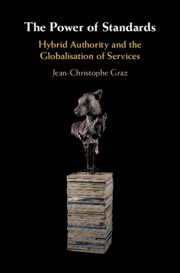Book contents
- The Power of Standards
- The Power of Standards
- Copyright page
- Contents
- Figures
- Tables
- Acknowledgements
- 1 Introduction
- 2 The Rise of Transnational Hybrid Authority
- 3 Service Offshoring
- 4 Standards as Regulation
- 5 Doubling Security
- 6 Standards to Create New Insurance Markets
- 7 The World Office
- 8 Conclusions
- References
- Index
- References
References
Published online by Cambridge University Press: 04 July 2019
- The Power of Standards
- The Power of Standards
- Copyright page
- Contents
- Figures
- Tables
- Acknowledgements
- 1 Introduction
- 2 The Rise of Transnational Hybrid Authority
- 3 Service Offshoring
- 4 Standards as Regulation
- 5 Doubling Security
- 6 Standards to Create New Insurance Markets
- 7 The World Office
- 8 Conclusions
- References
- Index
- References
- Type
- Chapter
- Information
- The Power of StandardsHybrid Authority and the Globalisation of Services, pp. 223 - 245Publisher: Cambridge University PressPrint publication year: 2019
- Creative Commons
- This content is Open Access and distributed under the terms of the Creative Commons Attribution licence CC-BY-NC 4.0 https://creativecommons.org/cclicenses/



